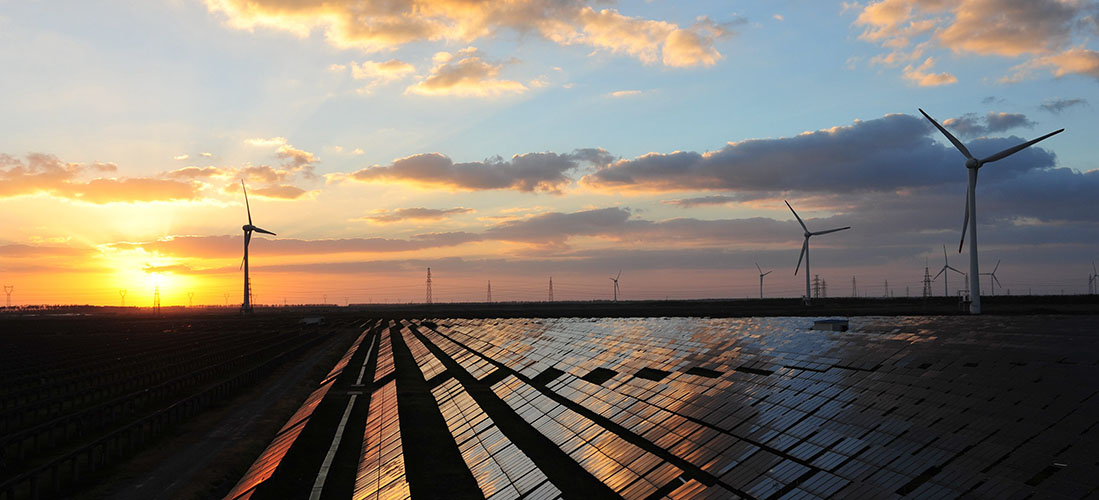June 5, 2017
Versions in عربي (Arabic), 中文 (Chinese), Español (Spanish)
[caption id="attachment_20079" align="alignnone" width="1099"] (photo: Imagine China/Newscom)[/caption]
(photo: Imagine China/Newscom)[/caption]
Wind turbines and solar panels generate electricity at power station, Jiangsu, China. Getting energy prices right will help reduce environmental costs and save lives (photo: Imagine China/Newscom)
World Environment Day is an occasion to consider why it’s so important to get energy prices right. The IMF has long argued that energy prices that reflect environmental costs can help governments achieve their goals not only for improving public health but also for inclusive growth and sound public finances.
A number of countries such as Egypt, Indonesia, Mexico, and Saudi Arabia have recently taken important steps to increase energy prices towards market levels. Some others, such as India and China have made important strides in cost-effective renewable energy sources—and reduced their reliance on fossil fuels. Still, undercharging for fossil fuel energy remains pervasive and substantial and can cause severe health effects from pollution, particularly in densely populated countries.
Our Chart of the Week shows that energy subsidy reform (whereby higher prices would drive down energy consumption) would substantially reduce premature deaths from exposure to local air pollution.
For instance, if the right energy prices had been in place in 2015 on a country-by-country basis, air pollution deaths for Central and Eastern Europe and emerging and developing Asia would have been reduced by over 60 percent, given their high use of fossil fuels and exposure to emissions due to high population density.
In the Middle East and North Africa region, the reduction in air pollution deaths would have been about 50 percent, due to the large reduction in petroleum consumption.
In Latin America and advanced economies, the reduction in deaths is around 25 percent, reflecting the limited use of coal in the former and relatively low air emission rates in the latter due to use of emissions control technologies.
Also, according to IMF estimates, getting energy prices right would reduce global carbon dioxide emissions by about 25 percent and raise extra government revenues of 3.5 percent of GDP. Extra revenue gives room, for example, for governments to reduce some types of taxes (such as those imposed on labor) that weigh down growth; raise growth-enhancing public expenditure (e.g., for infrastructure, health and education); and finance targeted cash transfers for the poor. In addition, with energy prices no longer artificially cheap, countries would have strong incentives for investment in cutting-edge clean energy and transportation technologies.
For further reading, see also the latest article in the June issue of Finance & Development.







